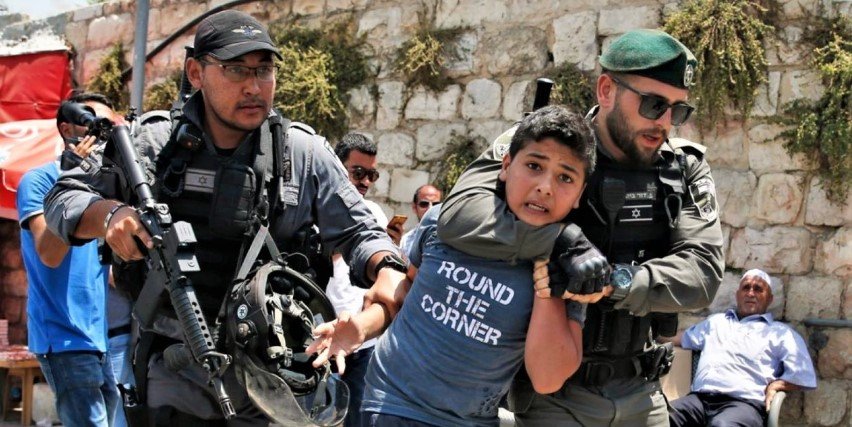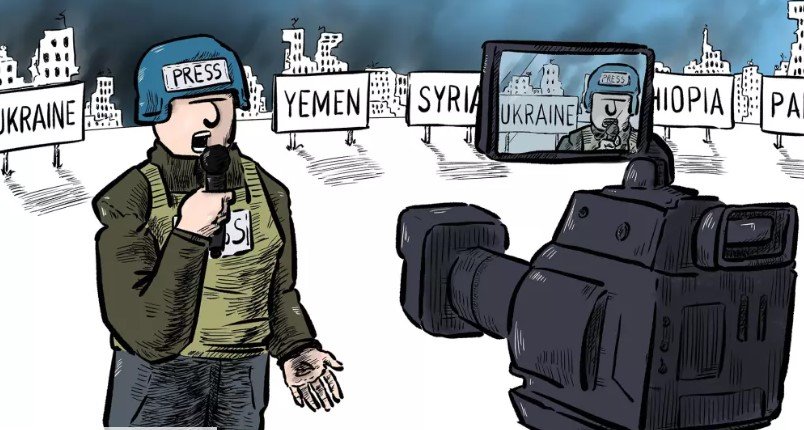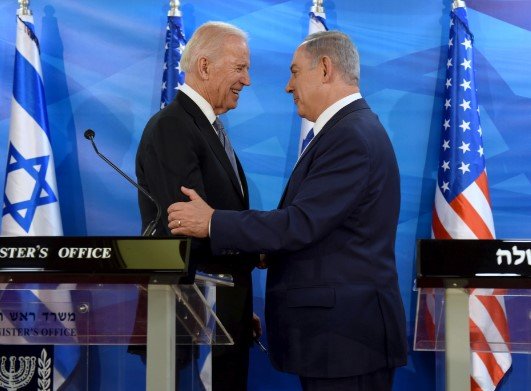For decades, Palestine have been at the centre of conflict, occupation, violence, and displacement. Palestinians have been living under Israeli occupation for over five decades, with their land being gradually taken away, their homes destroyed, and their rights violated. Similarly, Ukrainians have experienced a brutal conflict and violence since February 2022 when Russian tanks rolled. Both conflicts have been fuelled by nationalism, ethnic tensions, and a struggle for independence and sovereignty.
However, the international response, especially from Western world, to these conflicts has been vastly different, with the world viewing the conflict in Ukraine as a victim of Russian aggression, while the conflict in Palestine often discarded. This discrepancy in response exposes a double standard in the way the western community deals with such crises and raises questions about the moral values and geopolitical interests that shape the international response to such conflicts.
Double standard in international responses!
The conflict in Palestine and Ukraine has brought to light the double standard in the international community’s response to these situations. While the conflict in Ukraine is often viewed as a victim of Russian aggression, the conflict in Palestine is not given the same recognition as a victim of Israeli aggression. This discrepancy in the global response can be attributed to various factors, including geopolitical interests, strategic alliances, and a skewed media narrative.

For instance, the United States is a strong ally of Israel and provides military and financial support to the Israeli government, which has been accused of human rights violations and war crimes in Palestine. On the other hand, the US and its European allies have imposed sanctions on Russia for its annexation of Crimea and involvement in the conflict in eastern Ukraine. This demonstrates how geopolitical interests and alliances often influence the international response to conflicts, even when there is clear evidence of human rights violations and aggression.
Furthermore, the media narrative around the conflicts in Palestine and Ukraine often perpetuates a biased view that favours one side over the other. The Israeli-Palestinian conflict, for example, is often portrayed in the media as a religious or cultural conflict between Jews and Arabs, ignoring the root cause of the conflict, which is the occupation of Palestinian land and the denial of Palestinian rights. Similarly, the conflict in Ukraine is often portrayed in the media as a struggle between Ukraine and Russia, ignoring the history of Russian and Soviet domination over Ukraine and the ethnic and linguistic diversity of the country.
Similarities between the conflicts in Palestine and Ukraine
Both the conflict in Palestine and Ukraine have a history of colonialism and occupation. Ukraine was under Russian and Soviet rule for centuries, and Palestine was under British and Israeli rule for decades. The conflicts have been fuelled by nationalist and ethnic tensions, with Ukrainians and Palestinians fighting for their national identity and independence.

In Ukraine, the Ukrainian language and culture have been suppressed, and the Russian government has discriminated against and persecuted Ukrainians. Palestinians, on the other hand, have been denied their right to self-determination and statehood, with Israel expanding its settlements and control over Palestinian land.
Despite these similarities, the international response to the conflicts has been vastly different, with Ukraine receiving more attention and support from the global community than Palestine. This discrepancy can be attributed to various factors, including geopolitical interests, strategic alliances, and a biased media narrative. It is essential to recognize the similarities and differences between these conflicts and to demand a just and equitable resolution that respects the rights and dignity of all people involved.
Geopolitical interests overshadow moral values
The conflicts in Palestine and Ukraine have become a battleground for global powers, with little regard for the human cost of occupation and displacement. The international community’s response to these conflicts is often influenced by geopolitical interests, with countries supporting their respective allies based on their strategic interests rather than moral values.
The US has long supported Israel due to its strategic interests in the Middle East, including access to oil reserves and a strong ally in a region that is considered a strategic asset. Similarly, Russia supports Ukraine due to its strategic interests in Eastern Europe and its historical ties with the Ukrainian people.

However, this focus on geopolitical interests rather than moral values has led to a lack of progress in resolving these conflicts. Despite numerous UN resolutions and peace initiatives, the situation in Palestine and Ukraine remains unresolved, and the suffering of the people continues. It is essential to recognize the human cost of occupation and displacement and prioritize moral values over geopolitical interests to achieve a just and equitable resolution to these conflicts.
The conflicts in Palestine and Ukraine share many similarities, including a history of occupation and nationalist tensions. However, the international response to these conflicts has been vastly different, exposing a double standard in the way the global community deals with such crises. While the conflict in Ukraine is recognized as a victim of Russian aggression, the conflict in Palestine is not given the same recognition as a victim of Israeli aggression. This double standard is often influenced by geopolitical interests rather than moral values, resulting in a lack of accountability for the human cost of occupation and displacement.


